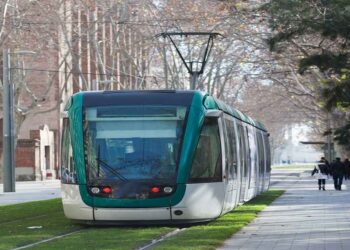Yavuz Sultan Selim Bridge (3rd Bosphorus Bridge) is being constructed over the Bosphorus Strait in Istanbul, Turkey.
The new bridge, which is an integral part of the Northern Marmara Motorway Project, will be located in the Odayeri РPasak̦y section of the motorway. General Directorate of Roadways (KGM), Turkey is the owner of the project.
Construction of the bridge started with the foundation stone laying ceremony on 29 May 2013 and is expected to be completed by October 2015. It is being developed on a Build – Operate – Transfer (BOT) basis and is expected to create approximately 7,000 construction and 500 operational jobs.
The estimated investment on the project is 4.5 billion Turkish liras (approximately $1.62bn).
Design highlights of the Yavuz Sultan Selim bridge
George Washington Bridge, Hudson River, United States of America
George Washington Bridge (GW Bridge) spans over the Hudson River, connecting Manhattan in New York with Bergen County in New Jersey.
Also referred to as the bridge of firsts, it will be the world’s first bridge to accommodate an eight-lane highway and a two-lane railway on the same level.
At 59m, the bridge is also expected to be the world’s widest suspension bridge. It will have a main span of 1,408m, making it one of the longest railroad suspension bridges. The bridge towers will be 330m- high above sea level, making it the world’s highest tower.
Details of the 3rd Bosphorus bridge
The Yavuz Sultan Selim Bridge and the Northern Marmara Motorway Project are being undertaken as part of the initiative to make Turkey one of the world’s ten biggest economies by 2023.
Proposals for the Northern Marmara Motorway include the construction of 115km motorway and access road between Odayeri and Pasaköy, including the third Bosphorus Bridge.
The new bridge is the third one on the Bosphorus Strait following the 1st Bosphorus Bridge, which was put into operation in 1973, and the Fatih Sultan Mehmet Bridge (2nd Bridge), which was completed in 1988.
It will consist of a two-way four-lane motorway and two high-speed railway tracks, and is expected to be accessed by approximately 135,000 vehicles a day in each direction. The bridge will cross the Bosphorus Strait between Garipçe village on the European side and Poyraz on the Asian side.
The two railway tracks are proposed to have 25kV overhead electrification in the near future. The preliminary design allows for freight trains up to 400m-long and a speed of 80kmph, and passenger trains up to 400m-long and running at a maximum speed of 160kmph.
The rail system will be integrated with the Marmaray and the Istanbul Subway to link Atatürk Airport, Sabiha Gökçen Airport, and the proposed 3rd Airport line. It will be accessible to passengers travelling between Edirne and Izmit.
3rd Bosphorus Bridge construction
It is expected that the bridge construction will be completed within 36 months and, when operational, is expected to reduce the vehicular traffic on the other two Bosphorus bridges. It will include the construction of 59 bridge floors having a length of 5.5m each.
The bridge construction is expected to use approximately 230,000m3 of concrete, 50,000t of iron, 57,000t of steel, and 28,000t of cable.
Financing
“Construction of the bridge started with the foundation stone laying ceremony on 29 May 2013 and is expected to be completed by October 2015.”
Seven banks, including Garantibank International, GarantiBankasi, T. HalkBankasi, T. IsBankasi, VakiflarBankasi, Ziraat Bankasi, and YapiKredi participated in financing $2.3bn for the Northern Marmara Highway Project, featuring the 3rd Bosphorus Bridge.
It is the highest financing ever secured for a greenfield project in a single contract in the Republic of Turkey’s history.
Contractors involved with the 3rd Bosphorus Bridge development
The consortium of IC IÇTAS – Astaldi was contracted for the construction and operation of the 3rd Bosphorus Bridge and Northern Marmara Motorway Project. The consortium will operate the project for a period of ten years, two months and 20 days before transferring it to the Ministry of Transportation.
AECOM was commissioned to prepare an environmental and social impact assessment (ESIA) report for the project. STROS delivered four sets of NOV 2032 UP F7 construction hoists, a special tip-and- swivel platform, motors, and other equipment.
Michel Virlogeux, a structural engineer, and T-Engineering participated jointly in the concept design of the 3rd bridge. Mott MacDonald acted as the lender’s technical advisor, while Clifford Chance and DLA Piper were engaged as the legal advisors for the project.
































